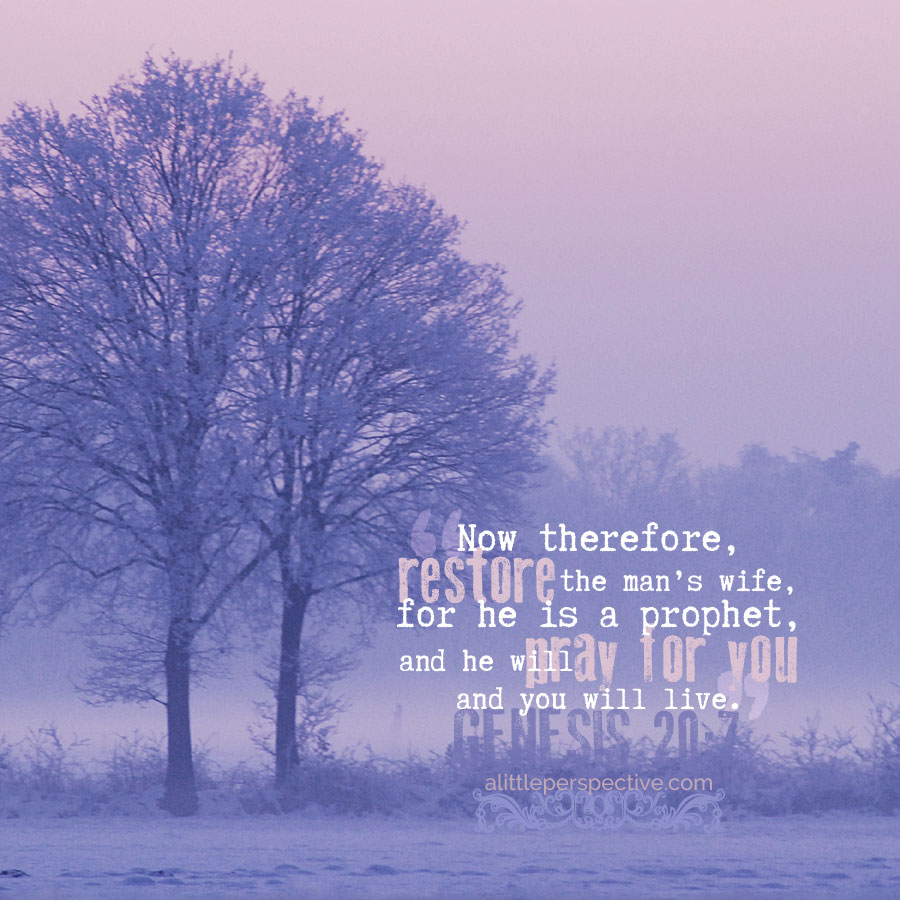Read Genesis 20:1-18 at Bible Gateway.
Hebrew paragraph division
Gen 20:1-18 {s} Abimelech takes, then restores Sarah, Abraham’s wife
Original Hebrew
“Now therefore, restore the man’s wife; for he is a prophet, and he will pray for you and you shall live. But if you do not restore her, know that you shall surely die, you and all who are yours.” Gen 20:7
prophet is in Hebrew, Strong’s H5030, nabiy, from Strong’s H5012, naba, a primitive root, “to cause to bubble up.” The ancient Hebrew pictographs are the nun + bet + aleph:
nun = the seed, thus continue, heir, son
bet = the house, thus house, household, family, in, within
aleph = the ox head, thus strength, power, leader
The nun + bet root tells the story of the seed (nun) inside its house (bet) . The concrete meaning of the root is fruit, as fruits have their seeds hidden within them; the action meaning is to flourish, to be fruitful. Adding the aleph nuances the meaning to the seed (nun) within (bet) which leads (aleph):
Then I said, “I will not make mention of Him, nor speak anymore in His name.” But His word (nun) was in my heart (bet) like a burning fire shut up in my bones; I was weary of holding it back (aleph) and I could not. Jer 20:9
The seed is the Word of God, Yeshua taught us (Luk 8:11). The word is hidden within the heart (Psa 119:11). But it is so powerful that it takes great effort to contain or restrain it there so that it doesn’t come to the fore; such great effort to overcome its power, as Jeremiah discovered, that it soon exhausted him and he could not restrain it any longer. Thus the abstract meaning of the root is prophecy, that seed or Word which is hidden, but which is so powerful that it bubbles up.
This is the first occurrence of “prophet, prophecy” in Scripture. When we think of Abraham we don’t think of a prophet like Isaiah or Jeremiah; he did not preach “Thus saith the LORD” as they did (that we have a record of). But he did “speak:” He lived his life differently from the pagan world around him. He lived in accordance with God’s ways. Verse 20 highlights that prophecy and intercession are two sides of the same coin. A prophet speaks on God’s behalf to men, and an intercessor speaks on man’s behalf to God.

















Leave a Reply